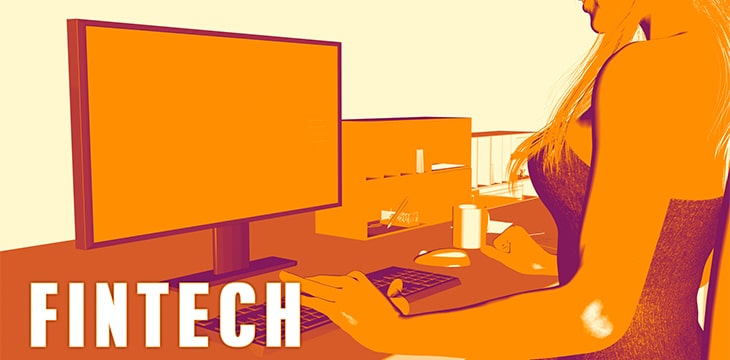|
Getting your Trinity Audio player ready...
|
Gender disparity and equality are sensitive yet crucial topics, be it at home or work. Women are far more visible in most industries compared to the 70s, 80s, or 90s, depending on what part of the world we are referring to.
The 70s in the U.S. became the late 90s in developing countries like India, and the 90s in India are probably the now in regions like Saudi Arabia and similar nations. In the end, it boils down to the shifting statistics at different times and places. In this article, we will explore the current, emerging, and changing dynamics of gender disparity, the reasons behind it, and some impressive numbers explaining and validating my observations—all within the fintech industry worldwide.
Women and fintech
The fintech industry is rapidly growing and is witnessing more gender diversity taking on leadership roles. The industry certainly looks diversified with people of color and many women working in the fintech space. However, it is rare to see women holding those roles in the fintech industry when it comes to leadership roles. According to the Findexable report of 2021, only 5.6% of women CEOs in fintech globally exist.
In North America, only 4.8% of company founders are women, compared to the 7.7% of women founders in Asia, 7.4% in Africa, and 6.5% in Europe. The trend seems to be the one where women are likely being brought in, but not being brought up the ladder. The numbers seem to be rapidly changing, though, reportedly showing an increase in female founders from 6% in 2010 to 30% in 2020. But let’s look at why the balance is still skewed and what’s disrupting the women to fetch the top positions within their respective organizations.
Numbers & Ventures
In the FDR1000 Index, only 16 out of 1,000 top performing fintechs were solely founded by women, while 911 were founded by men. Sixty-eight female CEOs are there, and for every female board member, there are nine men on average.
A very successful woman in the blockchain [financial] technology space, Kavita Gupta of Delta Blockchain Fund, shared her thoughts regarding the topic, saying: “I think the number of women in the blockchain space is going up, but as far as the women owners are concerned, I think that number is still low. It is not where I’d like it to be or where it should be, and things are gradually changing, though.
Delta Blockchain Fund recently closed its first deal with a woman-owned venture called Lumos Labs, and I am very excited about it.”
Besides starting businesses, access to funding is another stumbling block. The meager number of women who start their ventures struggle to receive adequate funding for launching and running them. Sadly, only 1.3% of total venture capital funding goes to women founders worldwide. Why? Because most investors tend to be males from similar regions or educational backgrounds, predominantly males from countries like the U.S. and Europe. So, female-led ventures raise 54c [cents] compared to one U.S. dollar raised by their male counterparts.
Without making it an ethical issue, the need is to identify the factors responsible for this unnecessary gap between men and women in today’s modern times. The report conducted extensive interviews with female leaders in fintech and organizations like Findex, UNCDF, Women’s World Banking, 60 Decibels, and Tameo explored the statistics in detail to understand where and how this industry can offer a fair and equal opportunity and the right tools to women.
According to SoGal Ventures, a female-focused fund based in Beijing in China, “Diversity and inclusion is not just the right thing to do, it has great financial and business outcomes and results. Sometimes we don’t link financial success of a company with a diverse workforce. But there’s a lot of data out there that absolutely links them.”
Is technology only for ‘Bros’?
“Crypto still carries an image that it is about ‘crypto bros.,” Gupta answered.
When asked whether fintech is biased towards men in general, CoinGeek’s Stephanie Tower said: “If you look closely to any tech-driven and centered industry, it always is male-dominated. I’m not saying there is something wrong with that but I find some sense of relief knowing that there are more women getting involved as early as the infancy stage of companies and startups building something valuable in tech and many of them are decision makers that move things forward quicker and more efficiently—than how things were in a male and sometimes ego-centric world earlier.”
“As a woman, for me it is empowering to be able to have a stand, a voice, and to drive positive changes and developments that could propel the industry further beyond mainstream adoption,” she continued.
For centuries, men have been leading many emerging industries and sustaining them, but if only groups considered adding women to their core teams as early as they could, they would realize how much more can be done and how faster things can be built, Tower said.
“Believe it or not, women make a lot of necessary things happen in a given time and we do it well and sometimes even better if not the same,” she emphasized.
Diddy Wheldon, one of the founders of Women of BSV, told CoinGeek:
“Women have amazing vision and if we can work with the right developers we can bring many of these ideas to the table. For example, Dr. Eva Porras has currently two papers on Bitcoin – Bitcoin and Ethics in a Technological Society, and Decentralized Blockchain for Autobiographical Memory in Cognitive Robotics.”
According to Wheldon, the roles that the Women of BSV are going to play in blockchain [fintech] are education, recruitment, graphics UI/UX design, art-focused projects, physical meet-ups, more journalism, shows, and eventually more developers. She said there is a shortage of female developers in the space, and if the Women of BSV can help in those areas to support more women, “then this is what we will focus on.”
Appreciating Calvin Ayre of the Ayre Ventures, Wheldon noted:
“I see more women writing, educating, and bringing these observations to a wider audience. I think Calvin Ayre has done a magnificent job with keeping women at the forefront of the industry in terms of journalism and getting the right message across to people in such a professional and coherent way.
“The irresponsible behavior of people like the Max Keiser are short-lived when it comes to momentum. There is only so much screaming you can do on a stage; serious business will win out in the end.”
Wheldon added that music is another heavily male-dominated industry. For example, only 2% of women are producers, whereas 98% are male. So it’s not just the blockchain industry that has the low numbers.
According to a Greyscale survey, 43% of the interested parties in BTC were women—a number far better than in 2017, indicating the growing numbers and that women are gaining a lot of ground. Wheldon pointed out that only 5% of that 43% are investors, founders, and developers, so she would like to see the number improve. And we happily agree with her.
“AI is definitely an industry I would very much hope more women would get involved in, we do seem to have a heavily skewed male-dominant perception at the moment,” she added.
Are women hired only for glamor?
“I don’t think it’s just a glamor thing but I do think it will separate the serious players from the paid celebrities, unless the female [and male] players invest in educating themselves about what they are selling to the people, and how the blockchain technology actually works,” Wheldon stressed.
Following in this view, Tower never perceived the digital currency world as “a glamorous space.” Instead, she sees it as more of a commitment to change the world for the better that entails hard work, testing, getting people’s buy-in, failures, and trying until it’s done.
“I am aware that there are some groups in the blockchain industry that want to make things exclusive, and would try to isolate others from getting into this space. But at the end of the day, like any industry, it is the women who drive things forward. In fact, women’s decisions at home like choosing what to buy for their households, for instance, may seem minuscule but that alone drives economic growth at a national level,” Tower pointed out.
Did the pandemic decrease or increase the presence of women leaders and founders in fintech? Are investors becoming more supportive of women-led ventures? Are the governments and the private sector allot funds specifically for female founders in the fintech industry? Is BSV the best fit for aspiring women professionals in the blockchain space? Stay tuned. We will discover what is being done and what more needs to be done to bridge this gap in the next series of Women in fintech.
Watch the BSV Global Blockchain Convention Dubai 2022 Day 1 here:
https://youtu.be/ggbZ8YedpBE?t=35337
Watch the BSV Global Blockchain Convention Dubai 2022 Day 2 here:
https://youtu.be/RzJsCRb6zt8?t=35726
Watch the BSV Global Blockchain Convention Dubai 2022 Day 3 here:
https://www.youtube.com/watch?v=RzSCrXf1Ywc

 02-16-2026
02-16-2026 




